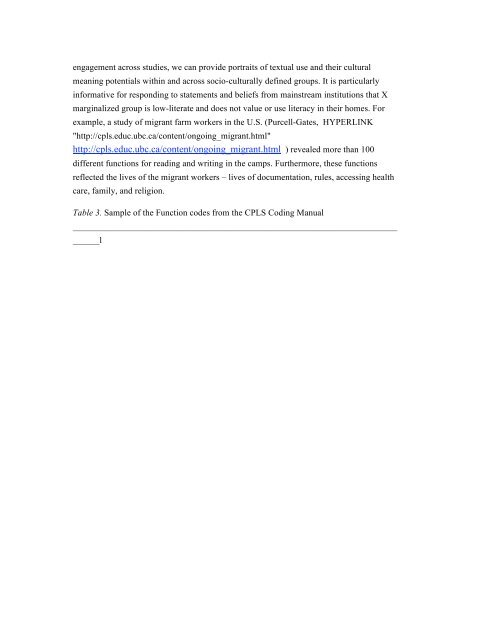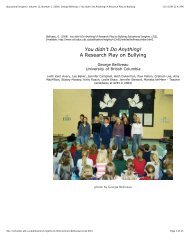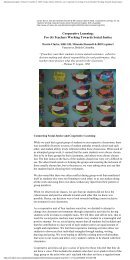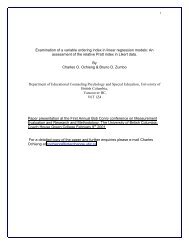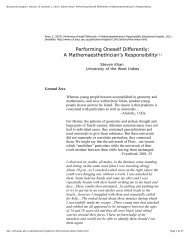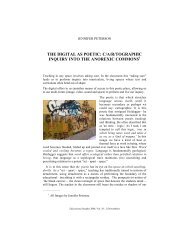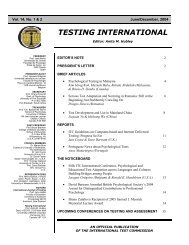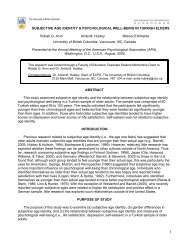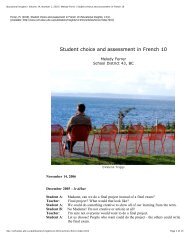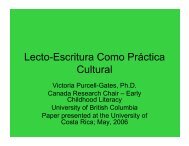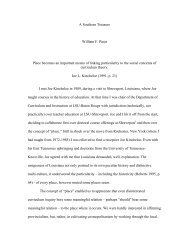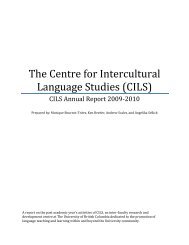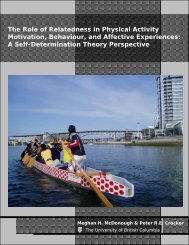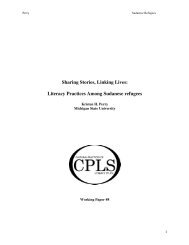Analyzing Literacy Practice - CPLS - University of British Columbia
Analyzing Literacy Practice - CPLS - University of British Columbia
Analyzing Literacy Practice - CPLS - University of British Columbia
You also want an ePaper? Increase the reach of your titles
YUMPU automatically turns print PDFs into web optimized ePapers that Google loves.
engagement across studies, we can provide portraits <strong>of</strong> textual use and their cultural<br />
meaning potentials within and across socio-culturally defined groups. It is particularly<br />
informative for responding to statements and beliefs from mainstream institutions that X<br />
marginalized group is low-literate and does not value or use literacy in their homes. For<br />
example, a study <strong>of</strong> migrant farm workers in the U.S. (Purcell-Gates, HYPERLINK<br />
"http://cpls.educ.ubc.ca/content/ongoing_migrant.html"<br />
http://cpls.educ.ubc.ca/content/ongoing_migrant.html ) revealed more than 100<br />
different functions for reading and writing in the camps. Furthermore, these functions<br />
reflected the lives <strong>of</strong> the migrant workers – lives <strong>of</strong> documentation, rules, accessing health<br />
care, family, and religion.<br />
Table 3. Sample <strong>of</strong> the Function codes from the <strong>CPLS</strong> Coding Manual<br />
_________________________________________________________________________<br />
______l


